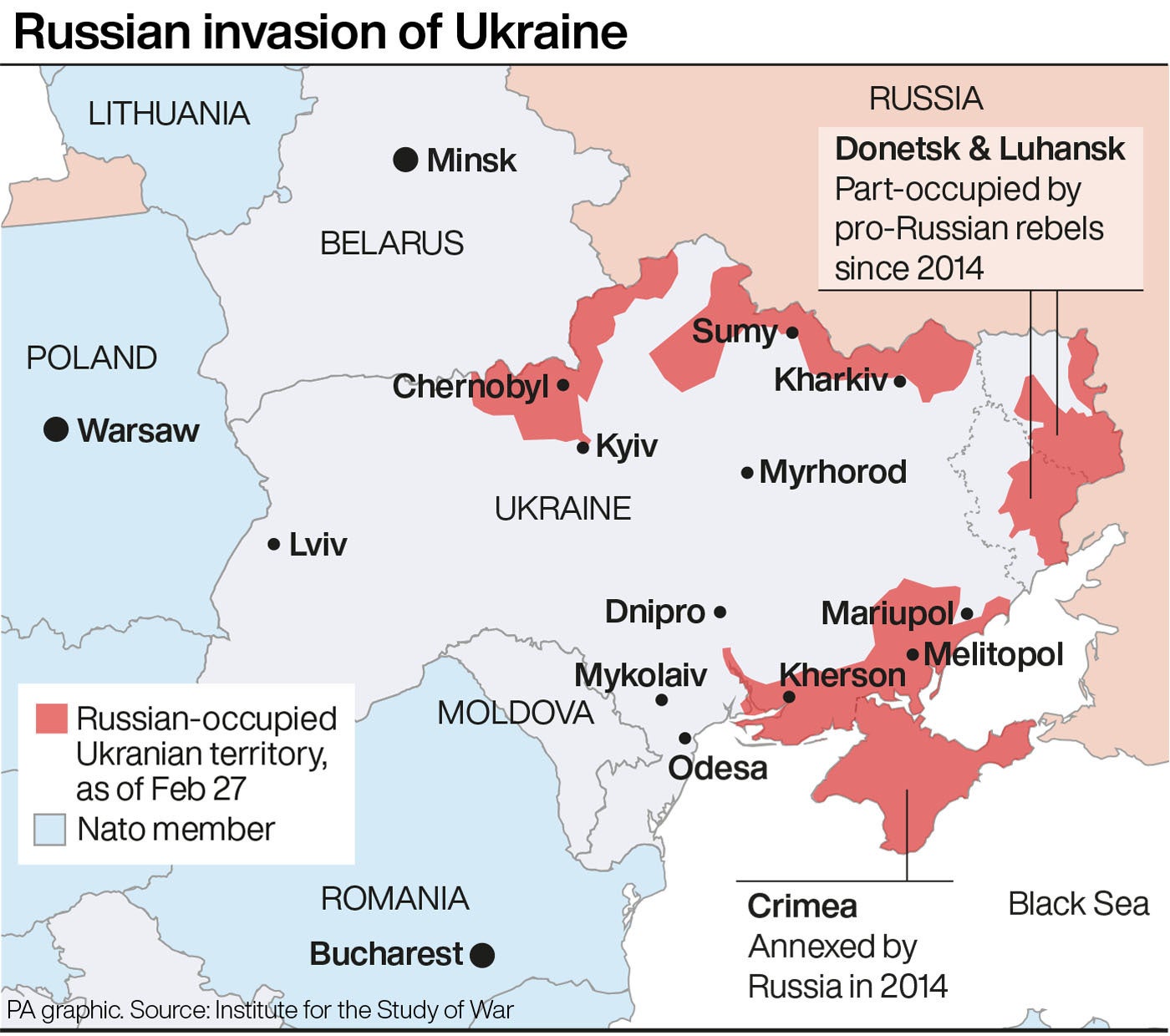Ukraine war: ‘Dozens killed and hundreds wounded’ in ‘massive’ Russian rocket attacks on Kharkiv
Residents tweet footage, describing the attack as ‘indiscriminate’
Your support helps us to tell the story
From reproductive rights to climate change to Big Tech, The Independent is on the ground when the story is developing. Whether it's investigating the financials of Elon Musk's pro-Trump PAC or producing our latest documentary, 'The A Word', which shines a light on the American women fighting for reproductive rights, we know how important it is to parse out the facts from the messaging.
At such a critical moment in US history, we need reporters on the ground. Your donation allows us to keep sending journalists to speak to both sides of the story.
The Independent is trusted by Americans across the entire political spectrum. And unlike many other quality news outlets, we choose not to lock Americans out of our reporting and analysis with paywalls. We believe quality journalism should be available to everyone, paid for by those who can afford it.
Your support makes all the difference.Dozens of people have been killed in rocket strikes by Russian forces in Kharkiv, a city in the northeast of Ukraine.
“Kharkiv has just been massively fired upon by grads (rockets). Dozens of dead and hundreds of wounded,” Anton Herashchenko, Ukraine’s interior ministry adviser, said in a post on Facebook this morning.
Footage posted to social media claimed to show suspected cluster munitions, with multiple explosions striking a building in quick succession. Sky News reported it had pinpointed the clips to northeastern Kharkiv.
Cluster munitions are a form of air-dropped or ground-launched explosive weapon that releases or ejects smaller submunitions – with the explosive bomblets designed to kill personnel and destroy vehicles.
It comes as the Russian military was accused of using such bombs in a separate attack that killed a child and two adults hiding in a pre-school in northeastern Ukraine.
A second child was wounded in the shelling on the Sonechko nursery and kindergarten in the city of Okhtyrka. Amnesty International said the strike may constitute a war crime.
Earlier, peace talks began between Ukraine and Russia at the Belarusian border.
The Ukrainian president’s office said that the goal of the talks was an immediate ceasefire and withdrawal of Russian forces from Ukraine.
Earlier, the UK’s Ministry of Defence tweeted an intelligence update on the situation in Ukraine, saying: “The bulk of Putin’s ground forces remain more than 30km to the north of Kyiv their advance having been slowed by Ukrainian forces defending Hostomel airfield, a key Russian objective for day one of the conflict.
“Heavy fighting continues around Chernihiv and Kharkiv however both cities remain under Ukrainian control.
“Logistical failures and staunch Ukrainian resistance continue to frustrate the Russian advance.
“Despite continued attempts to suppress details of the conflict from the Russian population, the Russian Armed Forces has for the first time been forced to acknowledge suffering casualties.”
Just last night, Ukrainian forces reported they had successfully repelled an attack on Kharkiv, considered the country’s second city, after fierce clashes with Russia.
However, with the war developing everyday, the situation has now changed.

On Twitter, residents of Kharkiv began sharing footage of the “indiscriminate” shelling unleashed by Vladimir Putin’s army.
“Under the distraction of ‘peace’ talks in [Belarus], massive atrocities are being committed with indiscriminate rocket attacks in the civilian districts of Kharkiv,” one woman, Gerz, said.
Elsewhere, Russian troops surrounded the port city of Mariupol overnight.
The settlement, on the Sea of Azov, came under heavy attack, according to Pavlo Kyrylenko, head of the Donetsk regional administration.
It is considered a vulnerable area because it is in close proximity to the front line with pro-Moscow separatists, the Russian border, and the Sea of Azov, where Russian warships have been deployed. It is also strategically important for the economy, responsible for much of Ukraine’s exports.
As the crisis worsens, the EU has said it is preparing to grant Ukrainians who flee the war the right to stay and work in the 27-nation bloc for up to three years.
At least 400,000 Ukrainian refugees have entered the EU so far, EU home affairs commissioner Ylva Johansson said earlier. EU members Poland, Romania, Slovakia and Hungary have land borders with Ukraine.
“We have to prepare for millions [to arrive in the EU],” Ms Johansson told a news conference after a visit to a border crossing between Romania and Ukraine.
She added she was hoping EU interior ministers would agree as early as Thursday on a protection scheme for those fleeing Ukraine.






Join our commenting forum
Join thought-provoking conversations, follow other Independent readers and see their replies
Comments